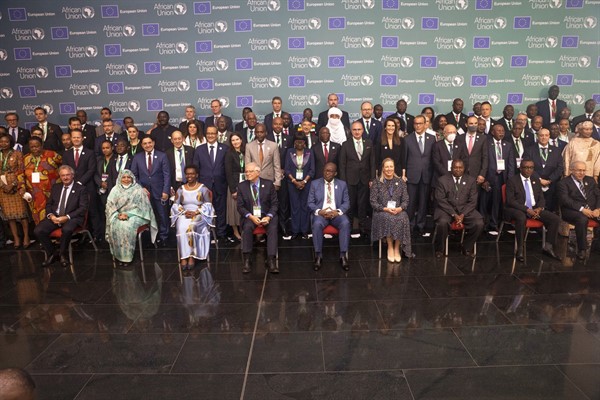The sixth leaders’ summit between the African Union and European Union will finally take place this week in Brussels, following several postponements due to the coronavirus pandemic. Traditionally occurring every three years, the summit was initially scheduled for 2020.
The AU-EU summit is often touted as the ideal venue for European and African elites to discuss issues of mutual concern. But this one is particularly significant, as it provides the opportunity for both sides to unpack the new EU strategy directed toward Africa, which was launched in 2020.
Beyond the strategy, however, the EU also just launched the 300 billion euro Global Gateway initiative in December 2021, coinciding with the Eighth Forum on China-Africa Cooperation, or FOCAC. The timing was no fluke. The Global Gateway, of which European Commission President Angela von der Leyen just earmarked 150 billion euros for Africa, is a direct rival to China’s $1.3 trillion global infrastructure investment program, the Belt and Road Initiative, or BRI. Like the BRI, the Global Gateway will fund infrastructure development and investment, with its initial time horizon projected to run through 2027. But it will also be used to promote norms and values such as democracy, good governance and transparency, as well as green governance, all to boost private sector investment. There is also an increased focus on green solutions, ostensibly to mitigate the impacts of climate change. This new, more pragmatic approach in the EU’s external relations underlines the idea of a “geopolitical commission” under von der Leyen.

